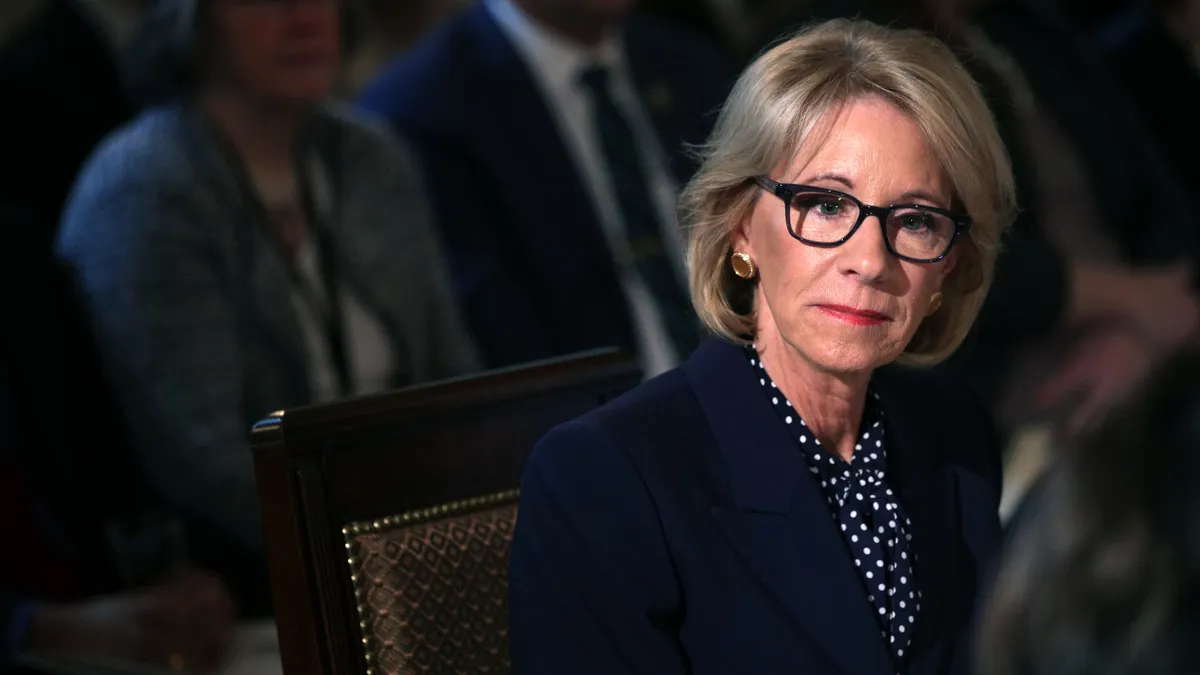Dive Brief:
-
Colleges in sexual misconduct investigations can now factor in statements made outside of a hearing when deciding the outcome of a case. That practice was previously banned under the Trump administration's rule governing Title IX.
-
The U.S. Department of Education said Tuesday it would no longer enforce that part of the Trump-era regulation. It required that investigators only account for parties' or witnesses' testimony if they participated in cross-examination.
-
The department's shift makes official an outcome that was possible after a federal judge found the rule's provision unlawful. It's a change in practice that will apply during a period when the Biden administration works on a new Title IX regulation.
Dive Insight:
The rule issued by former Education Secretary Betsy DeVos meant to counter what she viewed as an unbalanced approach for judging reports of sexual violence. DeVos contended the Obama administration pressured colleges to punish those accused of sexual misconduct and that institutions were ignoring their due process rights.
This belief stemmed from Obama administration guidance put forth in 2011 that survivor activists widely credited with drawing new national attention to campus sexual violence. DeVos' rule, which took effect last August, replaced the Obama guidance, which did not hold the force of law.
The DeVos regulation curtails the number of cases colleges must investigate, including many in off-campus locations, and constructs a judiciary-like system for adjudicating them. Part of this process includes holding a mandatory hearing in which the accused and accuser can cross-examine the other through an adviser of their choosing.
Officials could only take into account testimony and evidence provided during the hearing when deciding a case. This theoretically could allow an accused student to confess publicly, but investigators would have to exclude the admission if it was made outside the hearing.
U.S. District Court Judge William Young ruled earlier this month that this piece of the regulation was "arbitrary and capricious." The decision came in a lawsuit from several survivor advocacy organizations, a current college student, a former college student and a K-12 student.
Numerous lawsuits have challenged the regulation but it has survived entirely until Young's ruling.
In response to the court decision, Acting Assistant Secretary for Civil Rights Suzanne Goldberg wrote in an open letter that the Education Department will not penalize colleges that do not follow the rule's provision.
Goldberg wrote that officials can now consider in their decision statements made during the investigation, even outside of a hearing, as well as evidence such as emails or text exchanges leading up to the alleged abuse if the parties did not submit to cross-examination. The department will be updating its informational documents to reflect the change, Goldberg wrote.
The Biden administration is rewriting the regulation on Title IX, which bans all sex-based discrimination in educational settings. It aims to publish a draft rule by May 2022, though survivor advocates have called on the department to move quicker.















